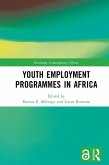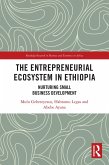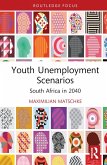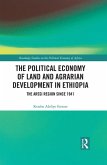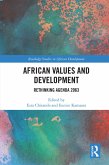By 2050, the labour force in sub-Saharan Africa is expected to be almost double the size of the labour force in high-income countries, representing a massive shift in the world's working population and providing a significant challenge for job creation. In this book, contributors bring together insights from more than 500 in-depth interviews and 1,500 focus group participants to consider whether youth employment programmes are effectively reaching vulnerable groups. This book tackles the problem of political clientelism in the allocation of benefits and considers the level of coordination that is taking place across programmes and political institutions.
Combining rich empirical findings with data about labour market outcomes and institutions, this book will be an important read for researchers wishing to understand the political economy of youth employment policy in Africa.
Dieser Download kann aus rechtlichen Gründen nur mit Rechnungsadresse in A, B, BG, CY, CZ, D, DK, EW, E, FIN, F, GR, HR, H, IRL, I, LT, L, LR, M, NL, PL, P, R, S, SLO, SK ausgeliefert werden.



